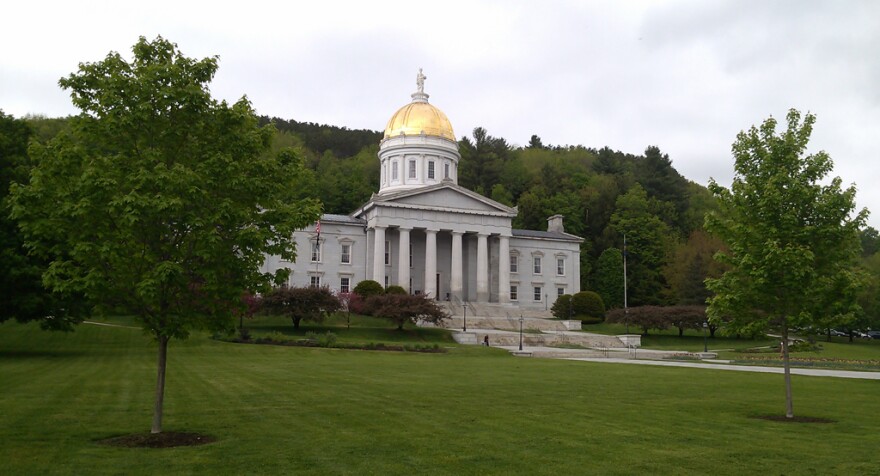In a special session this week, the Vermont Legislature overrode two of three vetoes issued by Republican Governor Phil Scott.
Two of the three vetoed pieces of legislation are municipal charter changes that must be approved by the legislature and governor. Winooski and Montpelier passed measures that would allow noncitizen residents to vote in local elections. In his veto message Governor Scott expressed concerns that a town-by-town approach would create inconsistency in election policy. Scott explained his thinking during a briefing two days before the special session.
“I’m not opposed to it philosophically," Scott said. "But I really believe that there should be we should take the time to create a template so that it’s all the same across the state so there isn’t this patchwork approach that we’re taking right now. So I’m not necessarily opposed to it. But I just think it just creates confusion and it creates inequity from one community to another.”
Scott was also uncertain about the fate of his vetoes.
“I think it’s going to be very close, to be honest with you," the governor said.
The veto overrides were first considered in the House on Wednesday. Winooski Democrat Hal Colston told legislators they should uphold the desires of city voters.
“The city of Winooski voted overwhelmingly at the polls to allow legal residents to vote only in local elections," Colston said. "Seventy percent of the electorate voted two-and-a-half to one in favor of noncitizen voting. This is the local control that Vermont champions. This is the local democracy that other states covet. The voters of Winooski have spoken loudly. The governor’s veto of H.227 must be overridden.”
The House overrode both charter change vetoes on 103 to 47 votes, three votes above the 100 needed to meet the Constitutional two-thirds requirement.
A day later, on Thursday, the Senate took up the two charter change vetoes. Putney Democrat Jeanette White countered the governor’s objections.
“The charters attempt to equalize all local residents," White said. "Only legal green card holders who are residents of Montpelier and Winooski can vote. Their residency will be proved as it is with all voters. He also felt that there needs to be more clarity about which issues can be voted on. Again the charters are very clear: only those that impact their town. It’s local issues only and that’s clear.”
The Senate overrode both charter change vetoes on 20 to 10 votes.
Governor Scott’s third veto, S.107, pertains to confidentiality over the arrest and charges against juveniles. In his veto message Scott said he had concerns about the bill raising the age of accountability for crimes and its expansion of protections for juveniles to young adults.
“We can take this up again in January and get it right," Scott said. "I have a lot of concerns with the bill overall from a transparency standpoint as well as you know raising the age and whether we have all the provisions in place to do that. I think Vermonters do in general.”
The House and Senate did not take action on that third veto and allowed it to stand. The chambers plan to revise provisions in the bill when the session reconvenes in January.
The Senate also worked on a couple bills unrelated to the vetoes. The most extensive discussion regarded a rental housing bill that creates a rental registry and improves inspections. South Burlington Democrat Michael Sirotkin chairs the Committee on Economic Development, Housing and General Affairs.
“I and other members of my committee feel this bill if passed will truly represent a major step forward in repairing and maintaining our housing stock in a safe and livable condition," Sirotkin said. "And we have a problem right now that needs fixing. The other thing I’ve heard is the registry is a form of Big Brotherism. And the information we’re asking for is so vanilla and with the House changes it will be kept private and will only be used to help the landlords and tenants and can prove invaluable data to help continue to address our serious housing accessibility and affordability issues.”
The measure passed 20 to 10. It is unclear what action Scott will take. The Legislature can reconvene again this fall but has not scheduled an additional special session.



